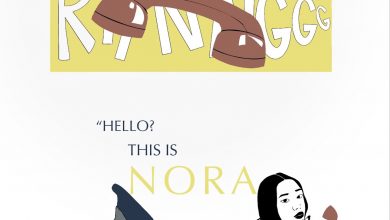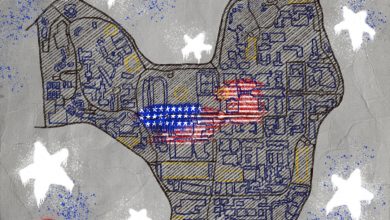Is “The Avengers” Combatting Sexism?
 The Avengers has been one of the biggest blockbusters of recent years, with the biggest audience, and biggest impact on popular culture. It is thus exactly the kind of film we should be holding accountable for gender representation. Superhero films, and their roots in the comic book world, have historically been a realm of struggle for female representation. Following this, the modern mainstream has consistently been saturated with the crime fighting muscular power of a stoic male, honorably avenging the death of his parents or using his accidental great power with ‘great responsibility.’ As a result, the woman has been limited to stock character type roles: the occasional appearance of a sultry femme fatale who can deliver a fateful poison kiss, a naïve, Daily Planet work colleague, or a girl-next-door crush. In the 1950s, DC’s Editorial Policy Code outlined that females were to remain secondary characters, with no special attributes, or story of their own. And many twentieth and twenty-first century films and franchises have followed this archaic format. We see examples of these types of characters in the Batman films of the 1990s, and the Spider-Man franchise of the 2000s.
The Avengers has been one of the biggest blockbusters of recent years, with the biggest audience, and biggest impact on popular culture. It is thus exactly the kind of film we should be holding accountable for gender representation. Superhero films, and their roots in the comic book world, have historically been a realm of struggle for female representation. Following this, the modern mainstream has consistently been saturated with the crime fighting muscular power of a stoic male, honorably avenging the death of his parents or using his accidental great power with ‘great responsibility.’ As a result, the woman has been limited to stock character type roles: the occasional appearance of a sultry femme fatale who can deliver a fateful poison kiss, a naïve, Daily Planet work colleague, or a girl-next-door crush. In the 1950s, DC’s Editorial Policy Code outlined that females were to remain secondary characters, with no special attributes, or story of their own. And many twentieth and twenty-first century films and franchises have followed this archaic format. We see examples of these types of characters in the Batman films of the 1990s, and the Spider-Man franchise of the 2000s.
This is not, of course, to discredit the rest of the comic book world, a deep and colorful place which the mainstream does not begin to touch, where many series take a pro-feminist stance, like “Tank Girl,” or “Persepolis,” while others have no need for any stance at all, as seen in such examples as “Lost at Sea.” “The Avengers,” meanwhile, is directed by Joss Whedon (creator of everyone’s favorite sci-fi heroine, Buffy) and has Scarlett Johansson (star of the female-driven, comic-book-to-movie Ghost World, and a favorite of acclaimed feminist Sofia Coppola) as the main female star. Which is why I wasn’t too worried about gender representation as I sat in a theater ready to see the film.
At first, I wasn’t disappointed. Natasha Romanov is welcomed by the otherwise all male group as an integral founding member. With no need for Iron Man’s suit, or Captain America’s shield, Romanov can hold her own, weapon and shield free, and she kicks some serious ass. She is also, without spoilers, particularly vital to the plot’s resolution and the end of the war. Interestingly, Johansson’s character also receives one of the largest portions of screen time, statistically greater than the Hulk, Thor, and Hawkeye – two of which have been deemed interesting enough to have their own movies. That screen time is also largely valuable dialogue, rather than the action heavy scenes that we see take up large portions of the other characters’ time. Which is why I began to wonder if “The Avengers” could this finally be the attention and precedence that female characters deserve.
It was a butt close-up that started to change my mind. As Romanov approaches the bad guy, Loki, in a tense scene of back-and-forth dialogue and mind games, a wide shot, at an unnecessarily low level, places Scarlett Johansson’s ass center screen. Distracting completely from the interrogation, it cries out for our gaze, and a Mulveyan reading.
As I returned to watch the film again, Romanov’s first scene stuck out. Tied to a chair and interrogated, she is clad in stockings and has an exposed chest. Her interrogator then threatens to literally cut out her tongue (how very appropriate) before she decides to break free and fight them. There is something very erotic about the way she bare-fistedly attacks her opponents, overpowering them swiftly and sexily, with full makeup and a low-cut dress. After subduing her male opposition by wrapping her legs around him, she walks away confidently, but not before picking up her pair of heels. In this respect, Romanov’s portrayal submits to the male target audience.
Aside from exotic Russian spy, Romanov takes on another female role – that of carer, or mother. She is at the side of many of her male colleagues in their time of need. She nurses Hawkeye back to health, attempts to save Bruce Banner from transforming into the Hulk, tries to protect Captain America from interrupting a fight, and is even there for Doctor Selvig as he confusedly returns to reality. In many respects, Romanov’s character submits to the feminist film theory idea of woman often being limited to roles of mother-sister-or-wife to male characters.
This is not quite what I was hoping for. Of course these films are also committed to their comic-book forefathers, and must remain faithful to the original characters and storylines. But as writer and director, Whedon undoubtedly had a great deal of control over these subtle intricacies, and could have more responsibly chosen to bring the female presence slightly more into the present day, without diverging from the original texts. We should remember that the inclusion of Natasha Romanov/Black Widow was nevera guarantee. Not being part of the original Avengers group, but rather an addition later in the comic series, her position in the film was a conscious effort on Whedon’s part. Whedon seems to begin admirably, but then fails to develop Romanov’s character much further than her cinematic predecessors.
Despite its downfalls, I believe that “The Avengers” is still be a step in the right direction for female representation on the big screen. Natasha is still a respected member of the group, integral to the story and plot development. She holds her own, even amongst her demi-god colleagues. It is true that Natasha may not have been deemed worthy of her own film like many of the other characters, but this seems largely because she never had her own comic book series as they did. We can again thank the 1950s and 1960s for that. In an interesting progression, following the release of “Iron Man 2,” in which Johansson first portrayed Romanov, the character was awarded her own self-titled comic series in 2010. Perhaps then, a Black Widow film is something we may be able to look forward to, her colorful back-story would provide a great foundation, and was teasingly hinted towards in “The Avengers.” Provided we continue to hold directors and producers accountable, positively deconstructing their work in this way, maybe, just maybe, female characters won’t have to be restricted to wearing skin tight leather to prove that they are strong and independent.




